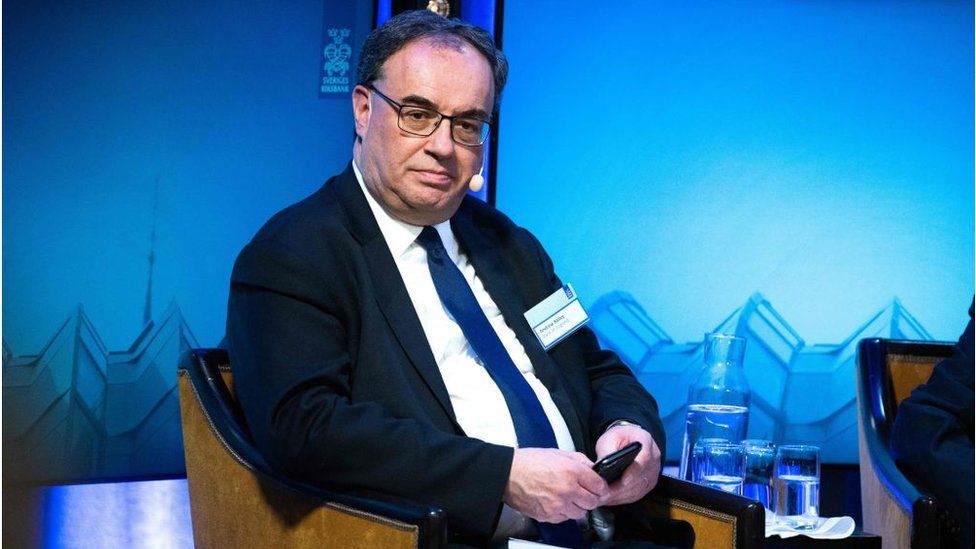
Inflation is likely to fall rapidly this year as energy prices fall, Bank of England Governor Andrew Bailey has said.
Speaking to Media Wales, Mr Bailey said a recent easing of inflation could be a sign that "a corner has been turned".
The Bank was not trying to change market expectations that interest rates will peak at 4.5%, he said.
The pandemic and the cost of living crisis meant a UK recession was still on the cards, he added.
A major component of inflation - how fast prices rise - has been soaring energy costs as economies recover from Covid and Russia's war in Ukraine pushes up oil and gas prices.
But wholesale energy costs have been falling in recent weeks, and energy bills are more than previously forecast.
This has made the Bank more optimistic that inflation could be on an "easier path", Mr Bailey said.
However, lots of vacancies for jobs mean employees are in a stronger bargaining position for wage rises, which could help push prices up, he said.
The pace of price rises in the UK has been slowing slightly, standing at 10.5% in the year to December.
In October prices were rising at a rate of 11.1%. In November inflation was 10.7%.
In November, the Bank forecast that inflation would fall to 5.2% by late 2023, and Mr Bailey stuck to that view. The Bank is due to publish new forecasts next month.
The economy "went off a cliff" during the Covid pandemic, Mr Bailey said, and while it has partly recovered, pay rises have not kept kept up with the pace of price rises, which is still near a 40-year-high, he said.
That means the UK is still likely to fall into a long, shallow recession, he said.
Rate hikes
Meanwhile, markets predict interest rates will peak at 4.5%, and the Bank is not steering them away from that, Mr Bailey said.
Interest rates in part determine how much people pay for mortgages and other borrowing.
Last October markets expected UK interest rates to peak as high as 6% - partly reflecting ongoing turmoil triggered by Liz Truss's brief stint as prime minister.
Financial markets now expect the Bank to raise its main interest rate to 4% from 3.5% on 2 February, although there could be a smaller quarter-point rate rise.
https://news.google.com/__i/rss/rd/articles/CBMiLGh0dHBzOi8vd3d3LmJiYy5jby51ay9uZXdzL2J1c2luZXNzLTY0MzM1ODQx0gEwaHR0cHM6Ly93d3cuYmJjLmNvLnVrL25ld3MvYnVzaW5lc3MtNjQzMzU4NDEuYW1w?oc=5
2023-01-19 19:12:23Z
1746328038
Tidak ada komentar:
Posting Komentar